10 Movies That Damaged The Careers Of Great Directors
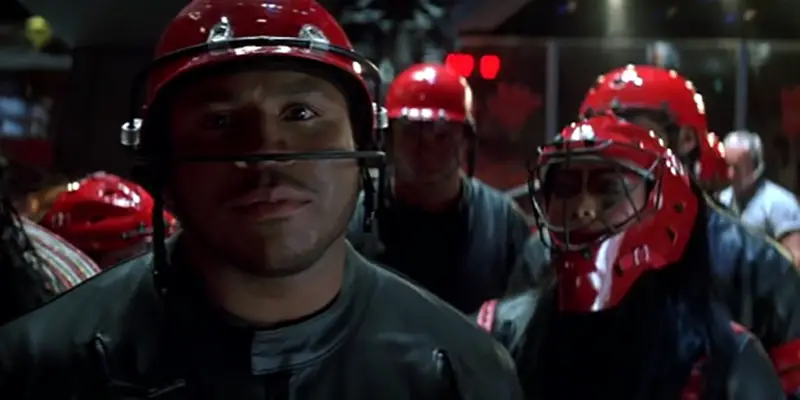
Alexandre Thiebaut is a part time writter, a full time…
They were at the top of their game. They had it all: the fame, the positive critics, a status amongst the greatest filmmakers of all time, and the power to make any film they wished. And then they went and did a bad movie, that one movie that blew it all away. This is a list of ten movies that seriously damaged a great director’s career, to the point of no return. These are directors considered household names – they are not merely appreciated for the mountains of money they’ve made the big studios, but considered great foremost for their artistry.
I am excluding the possibly worst movie ever made, Fear and Desire by Stanley Kubrick, as it would not be fair to the master; it was merely a very low budget, self-funded film. Also excluded are the likes of Rolland Joffe or M. Night Shamalyan, that were once ranked amongst the great but have since made more terrible movies than decent ones.
10. Planet of the Apes (2001) – Tim Burton
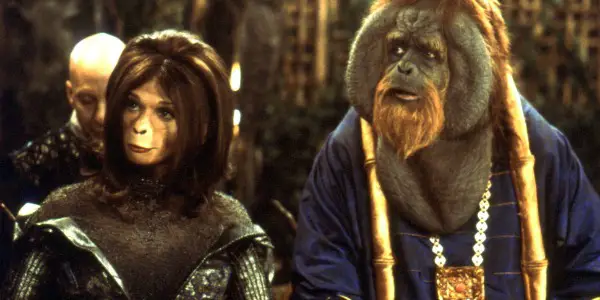
Budget $100 million; grossed $362 million
Planet of the Apes was torn to pieces by critics upon its release and hasn’t found one man to redeem its values since. It isn’t necessarily a bad film on its own; it only becomes an abomination when put into context. When you hire the biggest film director of the time at the summit of his art (Tim Burton, who successfully rebooted Batman to the big screen), combine it with one of the 20th Century’s richest and most fascinating stories (Pierre Boule‘s Planet of the Apes), and give it unlimited funds, you expect nothing less than a new Star Wars.
Instead what Burton gave us was a soulless, uneventful boring and linear remake of the first film, which brought absolutely nothing new to the table. Anyone sitting through Burton‘s Planet of the Apes may have asked him or herself the same question: what is the point of this film?
Worst than being flat, Burton‘s remake is devoid of all the sociological study that made the original book and first movie adaptation so vividly interesting. Whilst Boule‘s story asks demagogic questions that are more relevant today than ever about race and the white man’s domination, Burton‘s movie is an epic quest that resembles more the tribulations of Moses than Boule‘s quest for survival.
After this artistic failure, Burton was never the same again. Despite some well-received blockbusters such as Alice in Wonderland and Charlie and the Chocolate Factory, the director has failed to truly ever recreate the magic of his early delectable pleasures Beetlejuice, Batman, Edward Scissorhands or Ed Wood.
Sleepy Hollow was arguably Burton‘s last achievement, which magisterially combined style, substance, character depth and story. It was the last to accomplish what Burton made a name for himself: creating a whole world detached from reality, yet so real and tangible, a world so rich with characters so interesting and believable that their story has become self generating and lives on forever; in other words the magic of the cinema. It is this magic that Tim Burton lost forever with Planet of the Apes.
9. Confidential Report (1955) – Orson Welles
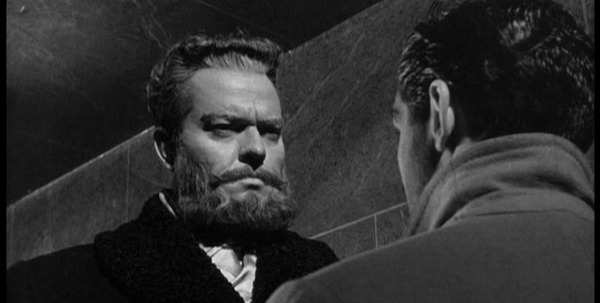
Budget and gross sales unknown
Confidential Report or Mr. Arkadin is a very frustrating movie. The story is rich and captivating, the direction fantastic, and the cinematography solid – but all this ingenious work has gone to waste through the acting job of Robert Arden, who went into cinema history as one of the worst actors in a lead role. It differs from other movies in this list, as the direction isn’t really to blame here, but nothing could save the movie from Arden‘s shocking performance. The British actor is helpless in his role of Guy Van Stratten, an improvised investigator who travels through Europe looking for clues on Mr. Arkadin’s mysterious past.
I cannot dislike Arden for destroying this could-have-been great film, but rather feel sorry for him. He looked like he was trying his best but there was nothing he could do to save his performance. His physical features were wrong for the role and his voice abysmal. Arden never seized the depth of his character, which was neither good nor bad, and therefore never knew how to act against his counterparts, who all delivered great pieces of acting. Orson Welles himself is particularly fascinating in his villain role as Arkadin.
So why cast Arden, you ask? Welles had no choice. His reputation severed in Hollywood by repeat box office failures, Welles had relocated to Europe in the 50’s and was working on a very tight budget. One way for him to honour the film with the great sets and shots it features was to save as much money as possible on the cast. Therefore, he cast himself in the villain part and found Robert Arden to play the lead. At the time he was a solid theater actor, was cheap to cast, and was also flexible enough to endure many months of filming segmented by multiple shooting intermissions, which were linked with financial issues.
Confidential Report proved two things to the followers of the maestro Welles. Firstly, he was definitely not bankable and anyone financing his projects should expect to make a financial loss. Secondly, he was artistically flawed in the direction of his actors. Not having the right man for the role is a fact, but not realizing he isn’t and not taking actions towards it is another. If Welles couldn’t replace Arden for financial restraint he could have at least given some hints and direction to the poor man, if not some acting lessons. There were clues in his previous movies The Magnificient Ambersons, Macbeth and even Citizen Kane, that showed Welles did not have the greatest eye and control over his actors’ performances, but it was Confidential Report that made it blatant to the world that Orson Welles was not a director of actors.
8. Indiana Jones and the Kingdom of the Crystal Skull (2008) – Steven Spielberg
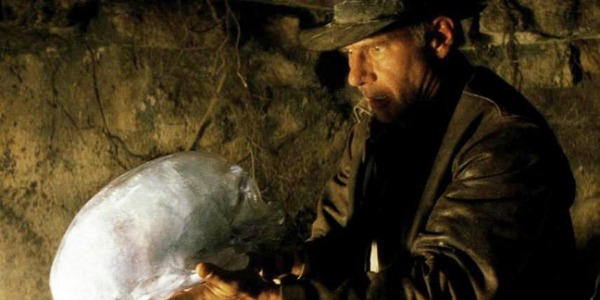
Budget $185 million; grossed $786 million
After giving the world those awful prequels of Star Wars (which could and perhaps should have made the list simply because of how awful and unbelievable the CGI looked), George Lucas wrote an awful screenplay for another Indiana Jones movie. Indiana Jones and the Kingdom of the Crystal Skull was dreadfully directed by Spielberg and resentfully acted by Harrison Ford. If the first half of the film was decent, the movie suddenly took a dip before the hour mark, which made the second half feel like an endless fall into mediocrity. It was so bad that it tarnished the then-untouchable three-part opus released in the 80’s.
Though a box office success, the fourth part of Indiana Jones is one of the most hated movies to have come out in the last decade. The reason is that Crystal Skull goes against everything the original trilogy stood for and what the character represented, so much that it could have been named Indiana Jones and the Suicide of a Great Trilogy. The original three movies worked because they featured a hero who was believable. Indiana Jones was a realistic James Bond – an archeologist not afraid of adventure, who could take a punch and give one but who had his limits. And that’s why Crystal Skull fails: the viewer stops believing in Indiana half-way through the film when he starts multiplying unbelievable stunts and comes out of those without a scratch.
Many have mentioned the introduction of aliens in the story as the movie’s killer, but I think it could have worked whilst still being very borderline. What really killed the movie is not only that Indiana wasn’t believable as an old adventurer anymore, but that the action scenes were made using poor CGI, which at times made you think you were playing a video game rather than watching a movie. Also, gone were the wonderful exteriors set in real exotic locations. The whole movie was blatantly shot in a studio, which had nothing exotic about it.
Combine those three elements and what you get is not only an artistic failure but a disaster huge and deleterious. It makes you look back at the older movies and start seeing bad where you used to see good. Suddenly, Indiana jumping down a plane on the side of the mountain and being rescued without a scratch by a pneumatic boat doesn’t appear believable anymore, nor does the whole bike race with the Nazis in The Last Crusade. In an effort to cash in on a movie long anticipated by movie fans all over the world, Spielberg and Lucas have filled their pockets but at the same time seriously damaged one of the greatest trilogies in the history of cinema, which until then appeared untouchable.
There is a rumour of a fifth Indiana Jones, but at this rate movie fans in the next ten years might forget altogether what great movies the first three Indiana Jones were, exactly as today’s movie fans have long forgotten how amazing and untouchable the first three Thin Man movies were until they went and did a fourth and a fifth to spoil it all.
7. The Tribulations of Balthazar Kober (1988) – Wojciech Has
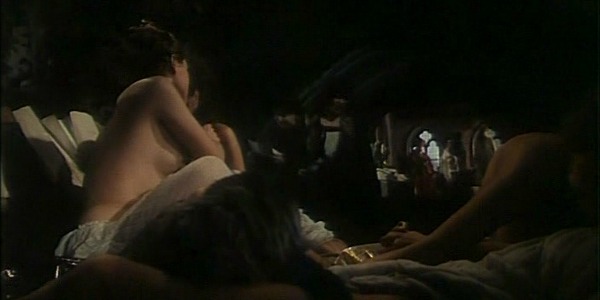
Budget and gross sales unknown
The Tribulations of Balthazar Kober marked the end of a career for Poland’s greatest filmmaker to date: Wojciech Has. And sad it is to admit that he did not go out in style. The Tribulations of Balthazar Kober or Balthazar for short is an example of a project that had resources but lacked energy or passion.
Has came to prominence in the 60s with a strong series of existentialist movies (One Room Tenants, Rozstanie), before directing the wonderful and unequalled Saragossa Manuscript. He followed this with a sublime adaptation of Lalka (one of Poland’s greatest novels) before directing the most expensive and greatest Polish film to date, The Hourglass Sanatorium. The latter was followed by a 10 year hiatus before the revered director made a strong comeback adapting materials from Anton Chekhov. A few years later came the disastrous Balthazar, which put Has into definite retirement.
Deeply anchored into Has‘ fantastic style, Balthazar tells the story of a theology student who travels across Germany in the 16th Century. The elements of magic and fantastic are still here and the cinematography, though a bit shabby at times due to lack of funds, remains beautiful overall. But the story, adapted from the French novel of the same name written by Frederick Tristan, is simply not engaging. The main character is antipathetic and the actor’s performance (Rafal Wieczynski) dreadful. The movie is a bore and a mess which doesn’t lead anywhere. Worse, the dialogue and their execution adapted from the French language are heavy, unnatural and frustrating.
Has surely understood halfway through production that the movie wasn’t working. But at 63 and after a career of 13 meticulously well-executed films, the Polish director did not have what it took anymore to sort his art out. The direction feels tired through and through and the end rushed, as if Has was eager to get done with what will prove to be his last ever production.
6. Ghost of Mars (2001) – John Carpenter
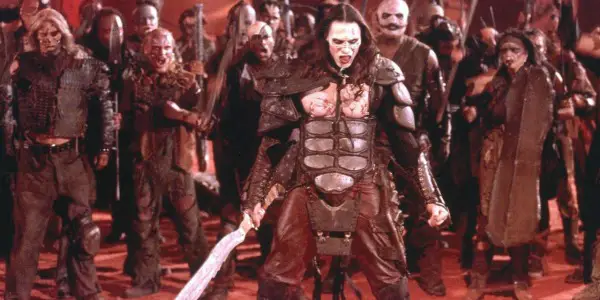
Budget $28 million; grossed $14 million
As much as it hurts me to put one of my all-time favourite directors on this list, one cannot deny that John Carpenter‘s Ghosts of Mars was an epic failure. There had been signs in the last decade that hinted that the master of horror was starting to lose his touch. In the Mouth of Madness from 1994 was the very last great movie from Carpenter, and the last one to truly bear his style: a combination of suspenseful music, mind-blowing cinematography and fascinating storytelling. Village of The Damned was the first misstep for Carpenter; if still visually beautiful and somehow suspenseful, it was the storytelling that was off in this 1995 film.
Then came Escape From L.A. a failed sequel that was Carpenter‘s first movie not to be visually irreproachable. Vampire followed in 1998, and it was a further step in the wrong direction. It was far from the level of Carpenter‘s films in the ’80s, but there was still a shadow of the director’s style which fueled hopes of a return to grace. But all hopes definitely died with Ghosts of Mars.
The cinematography of the movie is shockingly poor, the atmosphere and suspense lackluster, and the story shallow. The movie does not go anywhere, nor does it entice the viewer, and it is hard to believe this movie has been made by the great John Carpenter. Ghosts of Mars was a massive flop from a director whose style was perhaps too anchored in the ’80s. By the time he made Ghosts of Mars, Carpenter was a tired director who had been disillusioned and angry with Hollywood since his cult masterpiece Big Trouble in Little China in 1986, and had given the cinema a lot without perhaps receiving what was due to him.
After the movie, Carpenter went into retirement only to come nine years later with the fun and well-made The Ward, which was a return to form but not a great one, and far from the quality of the director’s earlier films. If Carpenter hadn’t made so many wonderful films in his early career (The Fog, Halloween, They Live, Prince of Darkness, The Thing, Christine, Starman, to name a few) his place within the all-time great directors would have been seriously questioned with Ghosts of Mars. It is a good thing, then, that he went into retirement and didn’t follow on the path taken by the film. It is the treat of a great artist to know when to stop; if only John Carpenter had stopped a little bit earlier.
5. Peggy Sue Got Married (1986) – Francis Ford Coppola
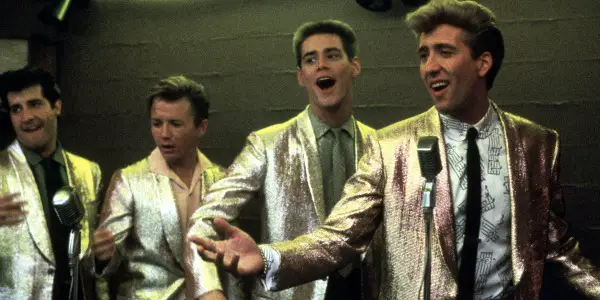
Budget unknown; grossed $41 million
Francis Ford Coppola came out of the ’70s with three of the greatest movies ever made: The Godfather, The Godfather Part II and Apocalypse Now. All three are near-perfect executions of a very strong screenplay, memorable acting, smooth editing, and Coppola‘s remarkable style. The American director jumped into the 80’s with one of the biggest reputations on the scene.
After a series of solid if lesser-strong movies (Rumble Fish, The Outsiders, and Cotton Club) came Peggy Sue Got Married. Looking back in time this is perhaps where Coppola fell off his big chair to began his slow chute into the oblivion he seems to be at today.
Peggy Sue Got Married is not altogether a disaster, and it actually does have its share of fans, mostly in the older generations that were teenagers in the 60s period in which the movie is set. There is a certain style about it, and it is somewhat comfortable to watch if you are looking for a brainless experience featuring an enormous amount of stars in their youth. The scenario is about an ex-prom queen about to get divorced with the ex-prom king. She travels back in time to relive her school days of 1960. It is no Back to the Future (though it was greedily trying to surf on its wave), nothing much happens and the movie itself is quite irrelevant.
The cast, on paper, is one of the most impressive to be featured in any film, but paradoxically it is awfully acted. In fact, perhaps only a young Jim Carrey and a young Catherine Hicks give okay performances. But Kathleen Turner, Nicolas Cage (the director’s nephew), Sofia Coppola (the director’s daughter), Helen Hunt, Joan Allen, Barry Miller and Maureen O’Sullivan are all miscast. Turner neither looks or acts 40 like her character is. Though stunningly beautiful, her whole performance is completely off and her efforts acting drunk are embarrassingly laughable.
Cage gave one of his worst performances. Though he is supposed to be a cool stud, he played his character as a loser, topped with one of the most annoying voices and accents you can imagine. Sofia Coppola simply cannot act and wasn’t credible as Turner‘s little sister. Hunt looks as old as Turner when she is supposed to be her daughter, Miller isn’t convincing as a geek, perhaps because we’ve seen him too much playing the exact opposite character, and Joan Allen looks far from a teenager.
Peggy Sue Got Married came out as one of the stupidest and most superficial movies to have ever been made by a great director. Put into context in Francis Ford Coppola‘s life, Peggy Sue Got Married is a cornerstone which marks the turning point of a great man’s career. After rising to the very top in the ’70s, Coppola increasingly became complacent in the ’80s. Like a Roman Emperor, he used his influence and power to force his family in the industry and started losing focus, interest, and dedication.
He still had all the goods to produce wonders, but by the time he followed up Peggy Sue with the most hated Godfather III or the wasted opportunity Dracula, he didn’t have the drive, application or energy to revive his career. Seeing where he has gone in the last ten years with the production of Tetro, Twixt and Distant Voices, which did not even benefit from a wide release in the cinema, perhaps it would be time for Coppola to hang the gloves up to save whatever there is to save of his career: three great films made in the ’70s.
4. Dream Lover (1986) – Alan J. Pakula
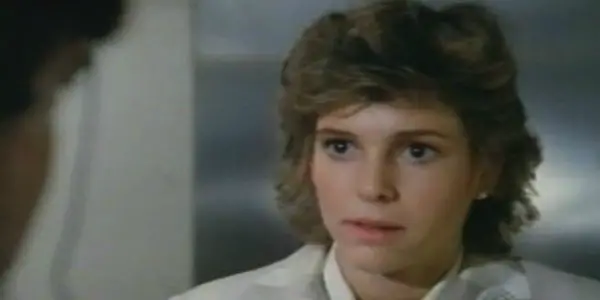
Budget unknown, grossed $502,237
Alan J. Pakula‘s Dream Lover is a true abomination: poor writing, bad acting, poor directing, pointless story, third rate cinematography, dreadful editing and a climax killer. The movie is boring, with no redeeming ending. It is merely a film about a woman who started sleepwalking after she encountered an intruder in her house whom she ended up killing in self defense.
The movie turns in circles, the actors are flat, and it is trying to sell sleepwalking as the scientific secret of the century. Aiming to be a dark psychological thriller, it fails by its incapability to generate in the viewer any emotion other than disdain and boredom. The headliner Kristie McNichol comes out as one of the most uninteresting actors on the big screen.
After the classics Klute (1971), The Parallax View (1974), All the President’s Men (1976) and Sophie’s Choice (1982) Pakula really shot himself in the foot with Dream Lover. His career never recovered, with the semi-exception of The Pelican Brief in 1993, which was merely an effort at emulating the lost genius of All the President’s Men. Following Dream Lover, Pakula directed so many average to bad movies that his status seriously degenerated in the hierarchy of the all-time great filmmakers, to the point of being borderline and often now omitted from many great directors lists.
3. Sympathy for the Devil (1968) – Jean-Luc Godard
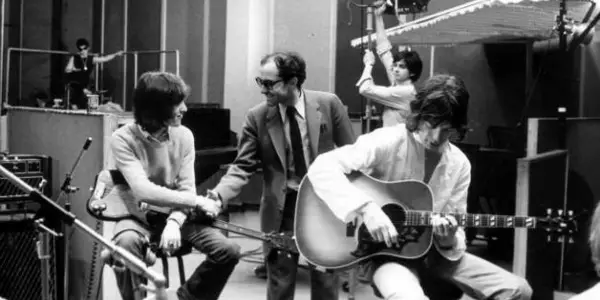
Sympathy For the Devil is a semi-documentary about counterculture featuring the Rolling Stones, the Black Panthers and some other notable activists. Heavy with microwaved-reheated intellectualism, the movie features shreds of boring and unrelated scenes patched together, showcasing at times the Rolling Stones rehearsing for the recording of their song Sympathy for the Devil.
It also features random scenes that make you cringe with anger at the arrogant and frivolous stupidity of their content, such as the interview of a random woman in the woods where all the answers are a mere yes or no, or a never-ending scene of the Black Panthers lining up their white women hostages in a city dump. Throughout the movie, there is absolutely no effort to create anything coherent or enthralling, and the movie shocks for its dreadful or should we say non-existent editing.
Taking itself very seriously, Sympathy for the Devil can only be defended as a counterexample of so-called contemporary art. Sort of like when Marcel Duchamp exposed a toilet and let the people call it art, Godard produced something awful and amusingly watched the people call it art. Art or not, the result is an insulting waste of time. Perhaps that was its purpose, and it should therefore be called art per se for achieving exactly what it set out to be.
Nevertheless, it is one of cinema’s most awful and torturing experiences to sit through, which well deserves its place within this list. Sympathy for the Devil was Jean-Luc Godard’s first film in English and would ultimately become his last. Had it had any success or was simply better made, it could have launched Godard‘s career internationally instead of restraining him to France and the French language, which has made it much harder for him to get recognition over the years.
2. Rollerball (2002) – John McTiernan
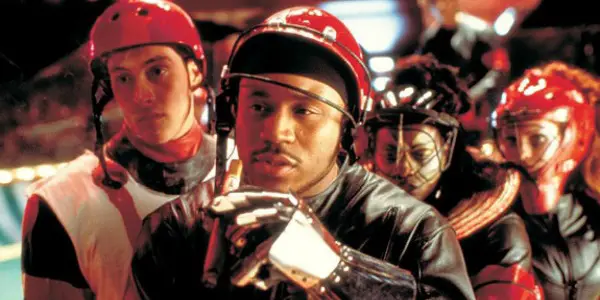
Budget $70 million; grossed $25 million
Often voted as one of the worst movies ever made, Rollerball also tops most lists of worst films by great directors. Before its release, John McTiernan was an unbreakable figure. He brought us the Die Hard Trilogy, the sensational Predator, and the cult film Last Action Hero. He had one of the richest and strongest filmographies of any director alive and active, and it seemed that he would reign over the action genre for decades to come.
However, three years before directing the remake of Rollerball, McTiernan had a major financial flop with The 13th Warrior, which grossed $80 million on a budget of $160 million. Artistically it wasn’t such a terrible film, however, and not nearly as inane and devoid of quality as was his Rollerball remake.
There is so much to be said about the lackluster Rollerball which serves as an insult to the original work by Norman Jewison. I’ll sum it up by saying it looks like a Disney version of the 1975 masterpiece. The master of action who thrilled us in Die Hard and Predator would not capture the interest of any viewer above the age of 8, and as well as being subdued in violence, his Rollerball version is stripped of all the political and sociological existentialism that made the original work so well.
Every aspect of Rollerball, from the acting to the screenplay to the scenery and action scenes, are so bad that they appear to have been made intentionally. If you really wanted to kill your career and tarnish your name so badly that you would be forgotten in less than five years, this is precisely how you would do it.
Casting Chris Klein (the American Pie star) to play the part of Johnathan, whose portrayal by James Caan in the original was one of the most charismatic of the world of cinema, has proven to be one of the biggest miscasts in history. Klein looked nothing like the part, nor was anybody in there and no one should forgive Jean Reno for agreeing to embark on such a mad and destroying journey. We can speak for days on how bad the movie was, but the bottom line is that this organized suicide killed McTiernan’s career along with everything he represented and achieved.
Rollerball did not only end John McTiernan’s career on-screen (though his last film was Basic a year later), it has destroyed his life off screen too. In 2006, McTiernan was arrested and sentenced in a series of long court hearings about hiring a private investigator to tape the telephonic conversations of Anthony Pellicano, the Rollerball producer. McTiernan’s multiple lies during the hearings would lead to his incarceration, during which he also declared bankruptcy. One brilliant career and life that went off the rail all because of one movie: Rollerball.
1. World Trade Center (2006) – Oliver Stone
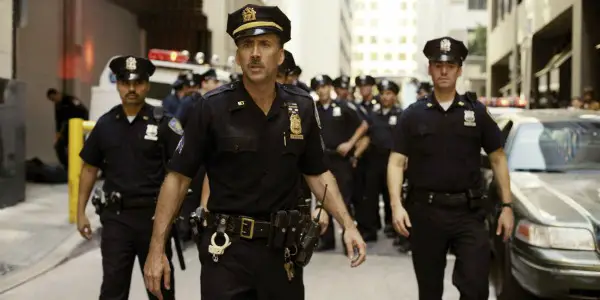
Budget $65 million, grossed $162 million
And the movie to top our list is a film so inept, absurd and revolting that it pains me just to talk about it. I will be briefer than with the other entries in this list simply because there is mush less to talk about here, for the movie is completely devoid of content. Unlike the unforgivable Rollerball just above, World Trade Center takes itself very seriously and therefore deserves more blame then McTiernan‘s awful film.
Made five years after the terrible events that shook the world, World Trade Center is a despicable attempt to cash in on one of America’s darkest times in history, an event that cost the lives of so many people. We all know the story and I am not going to delve into it; neither does the movie. Considering it was directed by Oliver Stone, the then expert in political and action movies such as Platoon and Natural Born Killers, one would expect an epic movie, with some drama, some controversy, and some spark that would leave the viewer thinking. There is nothing of that in Stone‘s WTC.
The movie centers around two despicable cops (Nicholas Cage and Michael Peña), who after one tower explodes get trapped in its ruins. Those are the first ten minutes, followed by two hours of absolute boredom, whilst the two unlikable cops trapped in the darkness recall in near inaudible murmurs their uninteresting life with their family. It is pumped up with nonsense, bears no message nor carries any drama.
There is absolutely nothing about this movie but a big explosion in the opening sequence. In the world of cinema, World Trade Center truly echoes the disaster of 2001: the world’s sincerest wish is that it really never happened. In the real world it lead to years of war, terrorism and manipulation; in the cinema world it destroyed the career, the image and the prestige of Oliver Stone, who until then was one of the greatest directors of all time.
Honorable mention: Gigli by Martin Brest (2003)
Considered as one of the very worst movies to have ever been made, it cannot included be on this list, since Martin Brest isn’t quite one of the greats. He had a strong and successful career start with the big hits Beverley Hills Cops (1984), Scent of a Woman (1992) and Meet Joe Black (1998), but none of those showcase any character and style as a director and artist. Those successes seemed to result more from the good producing and strong acting by lead actor stars Eddie Murphy, Al Pacino and Brad Pitt than from the artistry of Brest.
Gigli was actually so bad that it ended Brest‘s career altogether. Was it a loss? There is nothing in Brest‘s career that indicates he had anything to bring to the art or could do anything better than anyone else.
So, this was my list of the ten worst movies by great directors. Some readers may disagree with some entries and would have selected different films. All choices were subjective, though, and based not on financial but artistic failure.
All the films in this list have had disastrous consequences for their directors, after which their careers were never the same again. Some eventually recovered, but not without restraints (Welles, Godard, Spielberg, Burton), for some it was the beginning of the end (Stone, Pakula, Coppola), and others the end altogether (Has, McTiernan, Carpenter).
I hope you have enjoyed reading this list and, let me add for all readers surprised by the entry of Wojciech Has – I would urge you to find and watch The Hourglass Sanatorium and The Saragossa Manuscript to start with, and then go from there.
Is there any entry on this list you would like to discuss or add? Feel free to post your comments!
Budget and sales source: boxofficemojo
Does content like this matter to you?
Become a Member and support film journalism. Unlock access to all of Film Inquiry`s great articles. Join a community of like-minded readers who are passionate about cinema - get access to our private members Network, give back to independent filmmakers, and more.
Alexandre Thiebaut is a part time writter, a full time entrepreneur and a cinema lover. Born in the same city as the cinema, he studied the Art at the cinema Lumieres of Lyon before relocating to the UK where he manages two companies in the wine industry.













